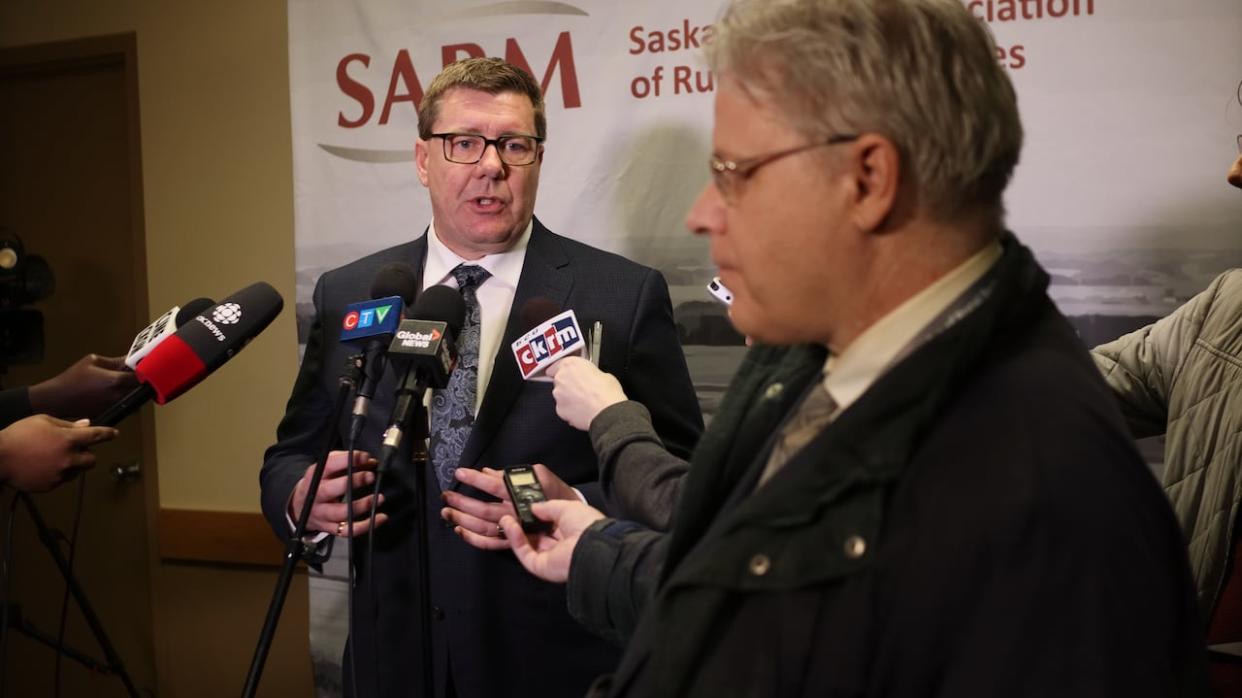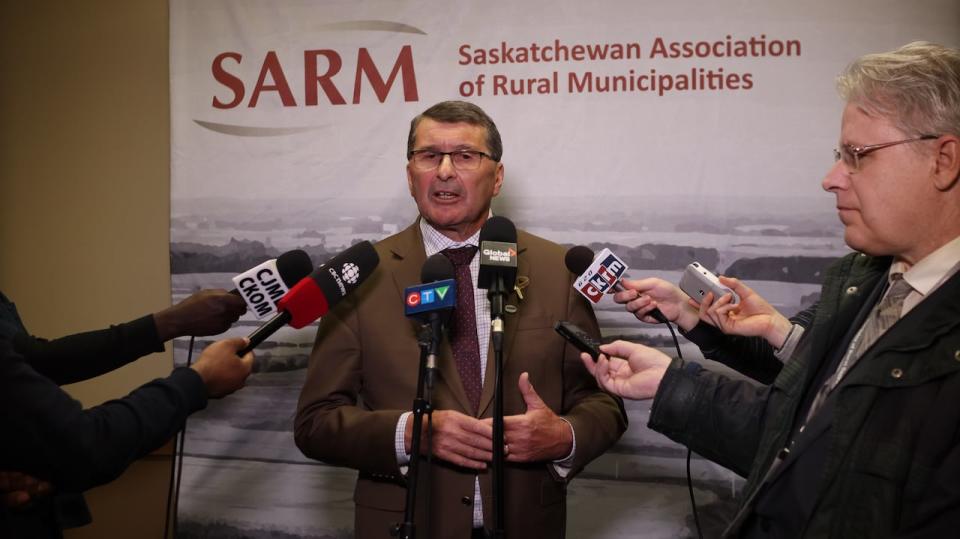FSIN raises concerns about lack of consultation as Sask. announces work on irrigation project

The Federation of Sovereign Indigenous Nations (FSIN) says it is concerned about the provincial government's plan to begin work on the first phase of its project to expand irrigation in the province.
FSIN Chief Bobby Cameron said the organization is "deeply troubled" by the lack of meaningful consultation on the project, as well as the lack of comprehensive impact assessments.
"Our inherent and treaty rights must be respected, and First Nations must be included in these major project decisions that impact our traditional lands that we have been stewards of since time immemorial," Cameron said in a statement.

This file photo shows Lake Diefenbaker, a man-made reservoir created in 1967. It is set to expand as the province launches a new irrigation project in 2025. (Cory Herperger/CBC News)
Premier Scott Moe announced Thursday the province has begun design work and consultations with land users as it's set to begin construction on the first phase — estimated to cost $1.15 billion — of the Lake Diefenbaker expansion project next year.
Lake Diefenbaker was created in 1967 by the provincial and federal governments to supply water for people, industry, power production, flood control and irrigation.
The expansion project will fulfil the untapped potential of the lake, Moe told reporters on Thursday.
The project would make more water available from the lake for farmers, allowing an additional 364 square kilometres — or 90,000 acres — to be irrigated.
"In addition to just being used for agricultural irrigation and increasing the value of the crops we are producing, it's also going to provide the opportunity as we build out channels for water security for our municipalities," Moe said.
Moe touted the project as having the potential for billions in economic benefits and providing thousands of jobs.
He said the cost of the $1.15-billion project will be shared between the provincial government and agricultural producers who want to participate.
Moe said he hoped Ottawa could lend a hand as it did in the '60s.
"It doesn't look like that's coming through, but we'll continue to ask, continue to work with our federal government so that they could be a partner in this space, but we need to start moving on it," Moe said.

Ray Orb, president of the Saskatchewan Association of Rural Municipalities, speaks with reporters at the association's annual convention Thursday in Regina. (Cory Herperger/CBC News)
The announcement was welcomed by Ray Orb, president of the Saskatchewan Association of Rural Municipalities. He said he's disappointed with the federal government.
"We are definitely a proponent, a strong proponent of the federal government putting in a share," Orb said.
FSIN Chief Cameron said the project raises significant concerns around First Nation rights and the potential to negatively affect wildlife due to the relocation of water.
Cameron said there's been a concerning lack of transparency and "inadequate" engagement throughout the project's planning stages.

FSIN Chief Bobby Cameron says he has serious concerns about the lack of consultation on the Lake Diefenbaker irrigation project. (Chanss Lagaden/CBC)
Moe said the province plans to continue consultations with agricultural producers and First Nations during the next 12 to 14 months, ahead of construction.
The construction set to begin next year is just the first of what is meant to be a three-stage irrigation project that was first announced in July 2020.
The plan was to eventually irrigate roughly 202,000 hectares of land with water from Lake Diefenbaker, doubling the amount of irrigable land in the province.
Saskatchewan reported in 2019 that irrigation accounted for 50 per cent of the water used in the province.
In 2020, Moe announced the entire project would cost $4 billion. On Thursday Moe said he expects the costs to be much higher now as a result of inflation.
The province still plans to move forward with a sequenced approach.


